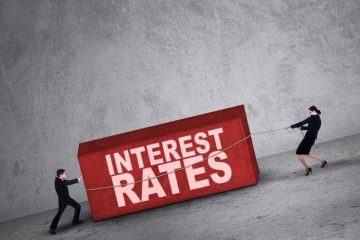Bill Ackman Is Preparing For The Next Crash
In Pershing Square’s quarterly newsletter released yesterday, August 13, Bill Ackman stated that he is planning an initial public offering of Pershing Square Holdings, Ltd targeted for later this year. The plan is for the closed-end fund to be listed on the London Stock Exchange under the symbol “PSH.”
The reason for the IPO is to help alleviate the risk of investor redemptions. In the letter, Ackman said the following about redemptions:
“Because we are an active, control and influence-oriented investor, we have avoided being fully invested because of the risk of investor redemptions. For example, during 2009, despite a relatively strong 2008 and a 41% net return in 2009, we had to keep a substantial portion of our assets in cash because of the large amount of investor redemptions we received. We will hopefully begin to address this issue with the initial public offering of Pershing Square Holdings, Ltd. (PSH), targeted for later this year, which will increase the amount of our capital that is permanent.”
Over the years, Ackman has kept a negative leverage on his portfolio with an average cash balance of 14 percent of invested capital since inception in 2004. Even without being fully invested, Pershing Capital outperformed the S&P 500 over the past decade by an annual average of 13 percent with annual returns 21 percent after fees compared to 8 percent for the S&P 500. The strategy of the hedge fund is to buy large enough stakes in companies to obtain an activist position. In a downturn, investor redemptions can adversely affect the strategy because the fund would need to reduce its positions in the companies and could end up not having enough shares to maintain its activist control. With permanent capital through a closed-end fund, investors would just sell their shares. The worst-case scenario is that investors would likely be selling for less than net-asset-value (NAV) in a period of heavy selling. Closed-end funds trade according to supply and demand of the security rather than at its NAV.
Daniel Loeb paved the way for Ackman to follow. Loeb had his IPO for his closed-end fund, Third Point Offshore (LSE:TPOU, TPNTF), in 2007. It is listed on the same exchange as Pershing Square Holdings will be listed. Loeb’s timing was perfect as the fund became public just before the Great Recession. In the last quarter of 2008, 778 hedge funds had to liquidate due to redemptions. Loeb and Ackman’s activist strategy makes it critical to maintain their large positions in companies in order to maintain control. Pershing Capital had no problem during this period due to its large cash balance used in preparation of redemptions.
It is very smart of Ackman to make the move to a public company to have permanent capital before the next bear market comes along. Warren Lichtenstein, executive chairman of Steel Partners (SPLP), did not decide to go public until after the redemption requests came flooding in during the fourth quarter of 2008. He had to go through a legal battle to save the hedge fund and bring it public. His average returns from 1990 to 2007 were 22 percent, but investors were rapidly jumping ship when the market crashed. Most of the positions were illiquid and could not be immediately sold. He either had to shut down the fund or go public in order to have permanent capital. Pershing Capital Holdings going public before the next downturn resolves the issues of having to liquidate positions and will allow the fund to maintain its long-term focus.
When the fund comes out, I will likely be looking to buy. As I had mentioned, transactions in closed-end funds do not happen at its NAV so check the NAV before buying to make sure it is not too expensive. Third Point Offshore publishes its monthly NAV on its website, and Pershing Capital Holdings will likely do so as well. Third Point has been selling at a slight discount throughout the year. An issue that I have seen with the Third Point Offshore Fund is a larger than normal bid/ask spread in the U.S. over-the-counter market. Make sure to use limit orders if the same issue arises with Pershing Capital.
You can track Bill Ackman (Trades, Portfolio)’s portfolio at GuruFocus: Bill Ackman Stock Picks.


